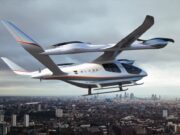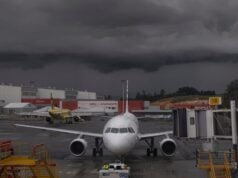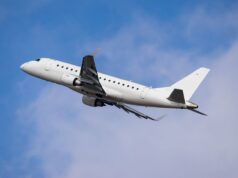
The very nature of commercial flight and the capabilities of transport category aircraft combine to make flight into the wild blue on a daily basis all but certain. We are gifted with machines with weather avoidance and mitigation capabilities that seem to give Mother Nature a run for her money. Weather radar, deicing/anti-icing, and high-altitude capabilities rank as some of the tools we use to mitigate nature’s hazards. The key to remember is that these tools moderate weather hazards, but they do not conquer them.
The technological capability of aircraft mandates that we check the weather prior to every flight. At the Part 121 level, we are going to try to conquer Mother Nature, to the best of our abilities. Remember, with transport category aircraft, we have the right stuff (our equipment) in order to get into the wrong stuff (foul weather). But, the final tool in our arsenal against weather is the flight crew. If you rely too much on the right stuff, you may find it won’t always work against the wrong stuff.
Roselawn, Indiana, Dallas Fort-Worth and Air Florida in DCA are some of the fatal accidents wherein weather conditions were contributing factors. While I am unqualified to speak to the other contributing causes of these tragedies, I am qualified to say that technology was overcome by nature. Life is part luck — and sometimes luck runs out.
It's in the FAR's
Regulations aside, you have a moral and self-serving obligation to check the weather. (New captains, are you listening?) Failure to equip yourself with a healthy respect and knowledge of weather could render your highly capable airplane rather incapable. We are the brains of these formidable craft. Remember the aviation adage, “It’s better to be on the ground wishing you were flying, than being in the air wishing you weren’t.” Know what you’re getting into prior to every flight.
Just because something can be done doesn’t mean it should. E.g., a wood and fabric airplane could fly into a hurricane but it wouldn’t end well. Apply this to Part 121 — you don’t always have to go. There are pilots who don’t check the weather and those who even brag that they don’t. Since many airlines upgrade pilots to captain rather quickly, spreading the word about the importance of weather is paramount.
There are myriad atmospheric threats that humble humans in airplanes. Turbulence, wind shear, icing, microbursts, and high winds are but a few of these hazards. The breadth of your knowledge before every flight makes you a safer pilot. Only your knowledge makes it possible for you to make a go/no go decision. Imagine the pilot who espouses, “Why check the weather? We’re going anyway.” Because these cavalier attitudes exist is exactly why you should check the weather! Imagine further that in your check of the weather, you find a hazard that would prevent you from going or at least might lead to delay? You have done your job well.
While checking the weather is a rather basic activity. It is a practice that should be habit and routine – applicable to old and new aviators alike. Veteran pilots can grow complacent owed to their experience, and newer pilots can be largely uninformed of weather’s potential for a wallop. Only a fool goes into an adversarial situation uninformed about the foe they face. Learn all you can about weather and soon, your routine checks will arm you with your greatest weapon against an angry Mother Nature.



























































































































